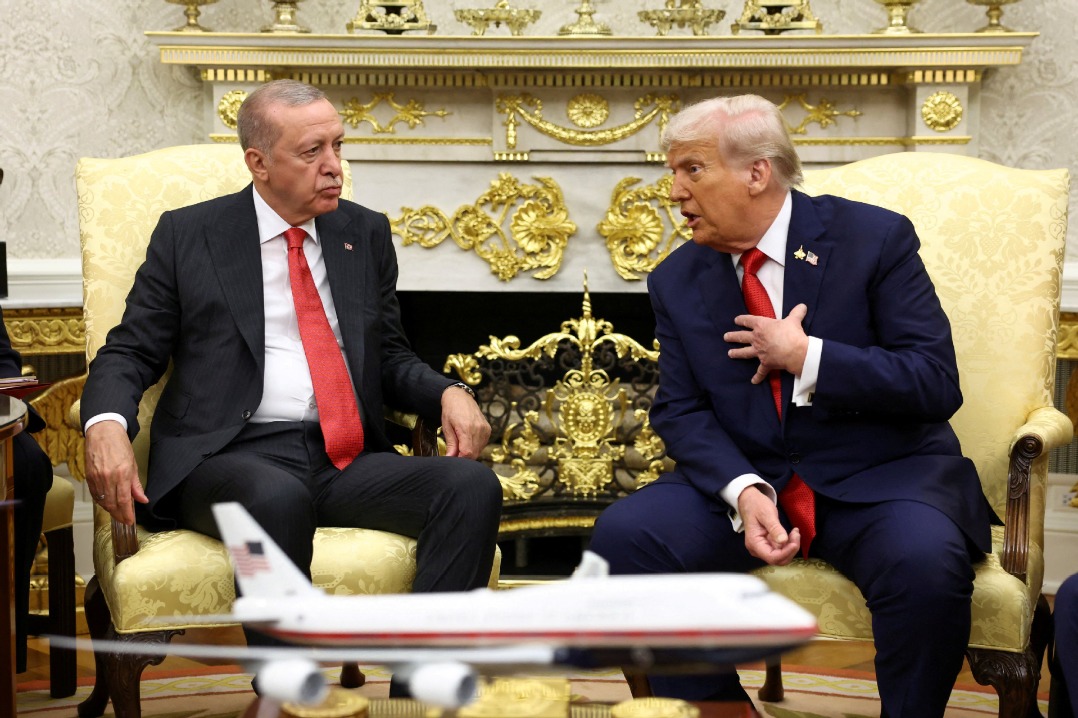China pivots to new growth model: Expert

Facing external headwinds from trade tensions and internal structural challenges, China is recalibrating its development model toward greater balance, resilience and innovation, Zhu Min, former deputy managing director of the International Monetary Fund, said in a talk at the London School of Economics and Political Science on Tuesday.
"China is preparing itself for a long-term external uncertainty, and shifting its development strategy," Zhu told the audience. "The new strategy moves away from the previous economic growth model dominated by GDP growth to a multidimensional and much more balanced economic development strategy."
According to Zhu, who is currently a senior advisor to the China Center for International Economic Exchanges, the revised strategy sets out five overarching priorities: security, science and technology innovation, economic development, green transformation, and shared prosperity.
"Looking forward, China's economic development is expected to be more domestic market-oriented, higher quality growth-focused, and stronger economic resilience," he said.
Zhu, who also previously served as deputy governor of the People's Bank of China, noted that the 2018-19 trade tensions with the United States marked a turning point. Despite tariffs, Chinese exports to the US stabilized at around $500 billion annually, supported by efficiency gains and diversification into Europe and Asia.
"We learned a great deal," Zhu said. "China managed to keep exports steady while broadening markets, which shows the resilience of our trade sector."
Domestically, Zhu emphasized the need to boost household consumption as a pillar of growth. He also underlined the importance of strengthening China's social safety net to reduce precautionary savings and encourage households to spend more confidently.
Cooperation underlined
On international relations, Zhu urged efforts to avoid confrontation between China and the US. "Sino-US relations are very important," he said.
"It is entirely possible for China and the US to achieve mutual success and common prosperity for the benefit of both countries and the world." To achieve this, he said, both sides must work together to foster mutual respect, peaceful coexistence and win-win cooperation.
During the Q&A session, Zhu forecast that the changing global trade landscape will push Chinese companies to expand internationally.
"China's companies will go abroad on a much bigger scale — not only to the US and Europe, but also Latin America, Africa and Asia. That will be the bigger trend in the next few years," he said.
Nicholas Stern, chair of the Grantham Research Institute on Climate Change and the Environment at the London School of Economics and Political Science, said: "Asia getting together seems to me economically, politically, a huge part of the story.
"It would be very nice if Europe took that opportunity to work much more closely with China … If somebody steps back in trade, in investment, in security, in finance, which the United States has done, then there's room for other people to step forward, and I hope that's what will happen," Stern said.
By combining high-quality growth with innovation, carbon neutrality goals, and stronger domestic demand, Zhu said, China is positioning itself to weather global uncertainties while contributing to global stability.
wangmingjie@mail.chinadailyuk.com

































